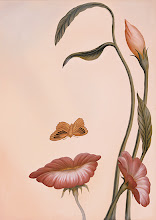

He performed the world's first human heart transplant operation on 3 December 1967, in an operation assisted by his brother, Marius Barnard; the operation lasted nine hours and used a team of thirty people. The patient, Louis Washkansky, was a 54-year-old grocer, suffering from diabetes and incurable heart disease. Barnard later wrote, "For a dying man it is not a difficult decision because he knows he is at the end. If a lion chases you to the bank of a river filled with crocodiles, you will leap into the water, convinced you have a chance to swim to the other side." The donor heart came from a young woman, Denise Darvall, who had been killed in a December 2, 1967, road accident while crossing a street in Cape Town. After securing permission from Darvall's father to use her heart, Barnard performed the transplant. Twenty years later, Dr. Marius Barnard recounted, "Chris stood there for a few moments, watching, then stood back and said, 'It works.'"[3][who?] Washkansky survived the operation and lived for eighteen (18) days. However, he succumbed to pneumonia induced by the Immunosuppressive drugs he was taking. Though the first patient with the heart of another human being survived for only a little more than two weeks, Barnard had passed a milestone in a new field of life-extending surgery.
Barnard became an international superstar overnight and was celebrated around the world for his daring accomplishment. He was quite photogenic, and enjoyed the media attention following the operation. Barnard continued to perform heart transplants. A transplant operation was conducted on 2 January 1968, and the patient, Philip Blaiberg, survived for 19 months. Dorothy Fisher was given a new heart in 1969 and became the first black recipient. She lived for 12 years 6 months after the transplant.[4] Dirk van Zyl, who received a new heart in 1971, was the longest-lived recipient, surviving over 23 years.[5]
Barnard performed ten orthotopic transplants (1967 – 1973). He was also the first to perform a heterotopic heart transplant, an operation that he himself devised. Forty-nine consecutive heterotopic heart transplants were performed in Cape Town between 1975 and 1984.
When many surgeons — disillusioned by poor results — gave up cardiac transplantation, Barnard persisted until the advent of cyclosporin, which helped revive the operation throughout the world. He was also the first surgeon to attempt xenograft transplantation in a human patient, while attempting to save the life of a young girl unable to leave artificial life support after a second aortic valve replacement. He was later accused of wrongdoing by her parents.
After his first successful heart transplant Barnard became known as the "film star surgeon". He was loved by his patients throughout the world, hundreds of whom were treated free of charge, and hated by many others who were jealous of his instant success. He was accused by some colleagues in the profession of "stealing" the idea and the opportunity to perform the first heart transplant. Often considered a spoiled and arrogant personality, he was also regarded as kind and considerate by others. Due to his widely publicized love affairs, he became jokingly known as "doctor of hearts", referring to the heart as emotional symbol rather than in its usual medical context.
Barnard was an outspoken opponent of South Africa's laws of apartheid, and was not afraid to criticize his nation's government, although he had to temper his remarks to some extent in order to travel abroad. Rather than leaving his homeland, he used his fame in order to campaign for a change in the law. After Denise Darvall provided the means for the very first heart transplant, Barnard transplanted her kidney into a 10-year-old coloured boy. The donor for the second heart transplant was also coloured. Christiaan's brother, Dr. Marius Barnard, went into politics, and was elected to the legislature on an anti-apartheid platform. However, Barnard later claimed that the reason he never won the Nobel Prize in Physiology or Medicine was probably because he was a "white South African".

No comments:
Post a Comment